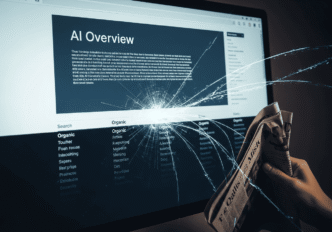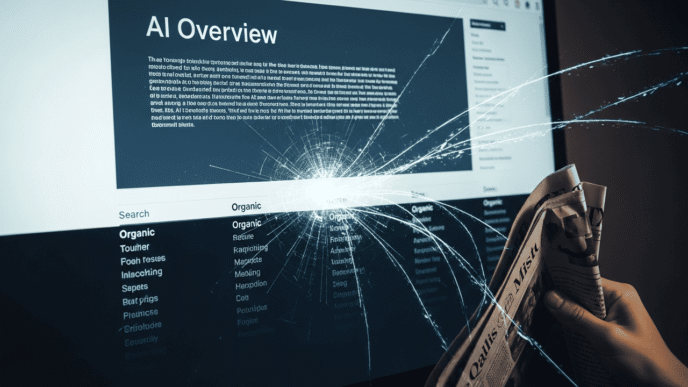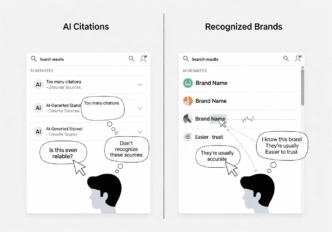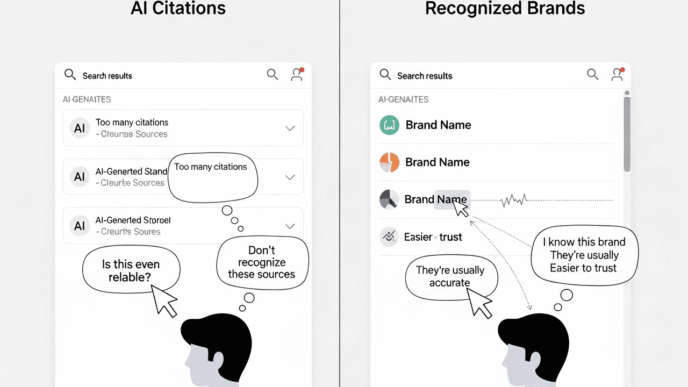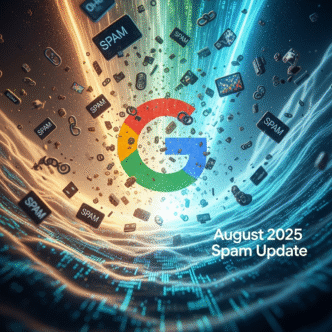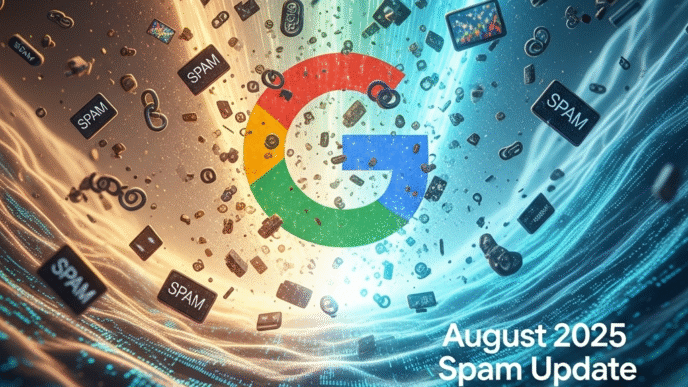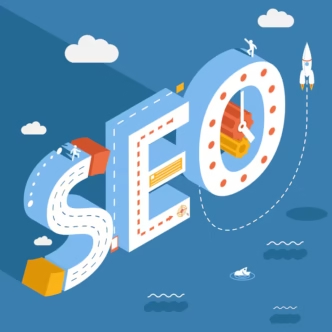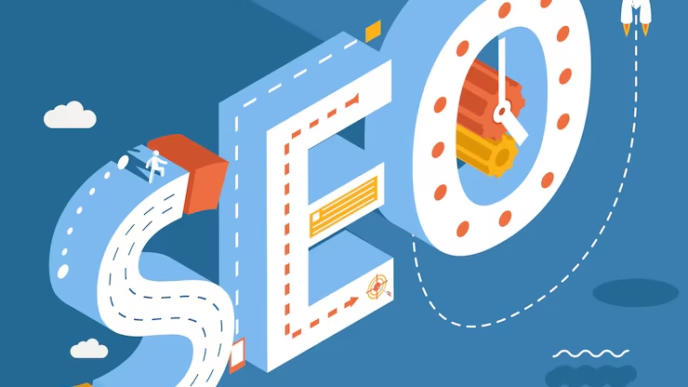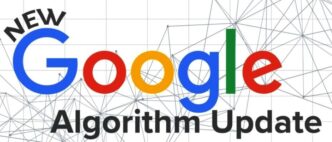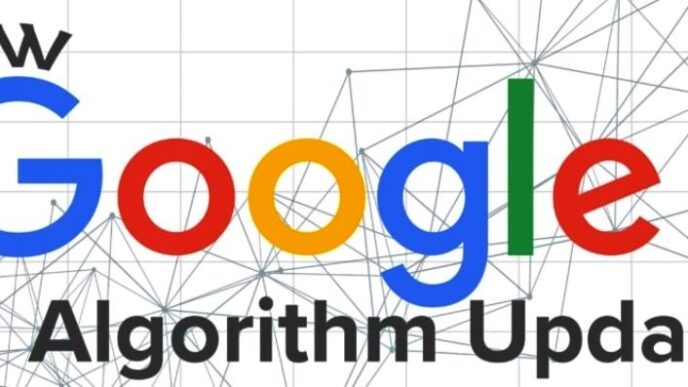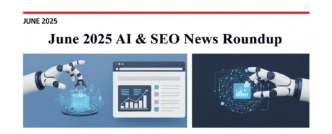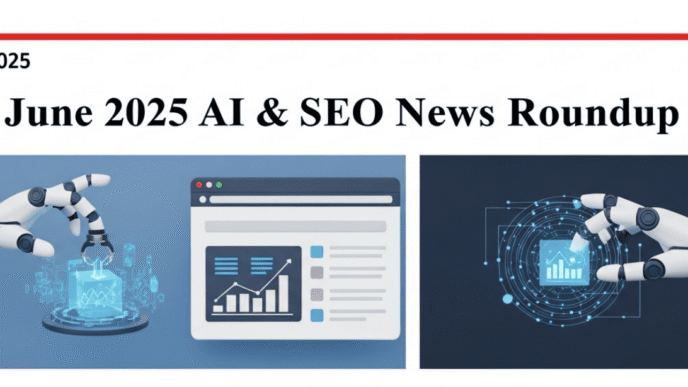Landmark research exposes the dramatic impact of AI Overviews on web traffic, raising existential questions for digital publishing and the open internet
By [News Reporter] | August 16, 2025
Multiple independent studies released this year reveal that Google’s AI Overviews feature is fundamentally reshaping internet traffic patterns, slashing click-through rates to websites by as much as 34.5% and accelerating the shift toward “zero-click” searches that keep users within Google’s ecosystem.
The findings, based on analysis of millions of search queries and extensive user behavior data, paint a stark picture of disruption across the digital landscape and raise urgent questions about the future sustainability of content creation and journalism in an AI-dominated search environment.
Table of Contents
Toggle
The Numbers Tell a Stark Story
The most comprehensive study, conducted by SEO tool provider Ahrefs using Google Search Console data from 300,000 keywords, found that when AI Overviews appear in search results, the click-through rate for the top-ranking result drops by 34.5% compared to traditional search results.
In March 2024, the average CTR for the #1 result on AI Overview keywords was 0.073. In March 2025, this had dropped to 0.026, representing a catastrophic decline for websites that previously dominated search traffic.
Performance agency Amsive corroborated these findings with their analysis of 700,000 keywords across 10 websites and 5 industries, documenting an average 15.49% CTR drop, with much larger losses in specific cases (e.g., -37.04% when combined with featured snippets).
The Pew Research Center provided the most authoritative user behavior analysis, studying 900 U.S. adults’ actual browsing patterns in March 2025. Their findings were unambiguous: Google users who encountered an AI summary were less likely to click on links to other websites than users who did not see one.
The Zero-Click Revolution Accelerates
Perhaps most concerning for content creators is the broader trend toward “zero-click” searches, where users get their answers directly from Google without visiting any external websites. Recent data from SparkToro reveals that 58.5% of Google searches in the U.S. and 59.7% in the EU result in zero clicks.
For news publishers specifically, the impact has been devastating. According to Similarweb data, the number of searches for news that result in no click-throughs to news websites has grown from 56% to nearly 69% by May 2025 since Google launched AI Overviews in May 2024.
The scope of AI Overviews continues expanding rapidly. Around one-in-five Google searches in March 2025 produced an AI summary, and 13.14% of all queries triggered AI Overviews in March 2025, up from 6.49% in January 2025.
Publishers Face “Extinction-Level Event”
The real-world impact on content creators and news organizations has been severe. Website owner Morgan McBride saw traffic to her crafting website plummet by 70% after AI Overviews launched, with some days making it “hard to even get out of bed” due to the financial devastation.
Major news outlets are feeling the squeeze across the board:
- 40 of People magazine’s top 100 search keywords triggered AI Overviews in May 2025
- 32 keywords for Daily Mail and 21 for The Washington Post now trigger AI summaries
- 75% of CBS News’ top 100 search keywords that triggered AI Overviews resulted in no click-throughs in May 2025, compared to 54% previously
Educational technology company Chegg has gone so far as to sue Google, claiming that AI summaries of search results have hurt Chegg’s traffic and revenue, while simultaneously trying to restructure their business model to adapt to the new reality.
Google’s Response: Quality Over Quantity
Facing mounting criticism from publishers and content creators, Google has attempted to reframe the narrative around traffic metrics. The company now argues that while overall click volume may decline, the quality of clicks has improved.
Google explains that a quality click is one where users don’t quickly click back — they stay and read, and claims it is sending “slightly more quality clicks” to websites than a year ago.
Elizabeth Reid, Head of Google Search, has positioned AI Overviews as pre-filtering systems, explaining that users clicking through to websites have already consumed introductory information, arriving with specific intent for deeper content or transactions.
However, this messaging has been met with skepticism from industry observers. “The fact that Google is pushing this ‘AI is not the end of search traffic!’ PR now only makes the situation seem more dire,” noted TechCrunch’s analysis of Google’s defensive positioning.
The Technical Reality Behind the Numbers
The studies reveal specific patterns about which types of searches are most affected by AI Overviews:
Query Length Matters: 8% of one- or two-word searches got a summary, versus 53% of 10+ word searches, indicating that more detailed, informational queries are most likely to trigger AI responses.
Question-Based Searches Hit Hardest: Question-based searches (“who,” “what,” “why”) generated AI summaries 60% of the time, directly targeting the types of content that have historically driven significant traffic to educational and informational websites.
Informational Content Most Vulnerable: 88.1% of queries that trigger an AI Overview are informational, affecting blogs, guides, tutorials, and news content more than commercial or transactional searches.
The Sources Google Prefers
Analysis of AI Overview citations reveals Google’s content preferences:
- Wikipedia, YouTube and Reddit were the most cited sites and accounted for 15% of links in summaries
- Government (.gov) sites made up 6% of links in AI summaries vs. 2% in standard results
- News sites appeared equally (5%) in both AI summaries and traditional results
This data suggests Google’s AI system favors authoritative, established platforms over smaller publishers and content creators.
Industry Response and Adaptation Strategies
As the digital marketing industry grapples with this seismic shift, experts are recommending fundamental changes to SEO and content strategies:
Diversification Beyond Google: “Relying only on Google has always been risky. Look at other ways to drive traffic, including email newsletters, social posts, direct mail campaigns, podcast appearances, and referral programs” advises Burlington Press.
Brand Building Over Traffic: Industry veterans emphasize that “in a world of zero clicks, visibility doesn’t always appear in your analytics, but it still drives influence” and recommend focusing on brand recognition rather than pure traffic metrics.
Content Structure Optimization: SEO professionals advise “structuring content in a way that makes it easy for Google to feature (such as using clear subheadings, bullet points, and concise answers)” to maintain visibility even without click-throughs.
Editorial Analysis: A Fundamental Shift in Information Economics
The data reveals more than just declining traffic numbers—it exposes a fundamental restructuring of how information flows through the digital economy. For two decades, the internet operated on a symbiotic model: search engines directed users to content creators, who monetized that traffic through advertising, subscriptions, or commerce.
AI Overviews represent a profound departure from this model. By synthesizing and presenting information directly, Google essentially becomes both the distributor and the destination, potentially severing the economic relationship between search and content creation.
The Quality vs. Quantity Debate: Google’s argument about “higher quality” clicks deserves scrutiny. While users who do click through after reading an AI summary may indeed be more engaged, this ignores the broader ecosystem effects. If 34.5% fewer people click through, even if the remaining clicks are higher quality, the overall economic impact on publishers remains devastatingly negative.
The Innovation Paradox: AI Overviews undoubtedly provide value to users seeking quick answers. However, they create a classic free-rider problem: Google benefits from synthesizing others’ content while those content creators bear the costs of research, reporting, and fact-checking without receiving proportional compensation through traffic.
Long-term Sustainability Questions: If content creators can no longer monetize their work through search traffic, what incentives remain for producing high-quality, original information? This could lead to a vicious cycle where the very sources that make AI summaries valuable begin to disappear.
The Broader Implications
The shift toward AI-powered search summaries reflects larger questions about information ownership, attribution, and economic sustainability in the digital age. As “AI-powered searches might be valuable in the short run but they might accelerate the enshittification of the internet in the long run” by undermining the economic incentives for quality content creation.
The trend extends beyond Google. General search referral traffic to 1,000 web domains dipped from 12 billion global visits in June 2024 to 11.2 billion in June 2025 — about a 6.7% decline year over year, indicating broader structural changes in how people consume information online.
What Comes Next
Several critical developments will determine the future trajectory of this transformation:
Regulatory Intervention: As publishers pursue legal action against AI companies, courts and regulators may need to establish new frameworks for content usage and compensation in the AI era.
Alternative Search Adoption: The decline in Google click-through rates may accelerate adoption of alternative search engines and AI platforms that offer better publisher partnerships.
Business Model Innovation: Publishers and content creators must rapidly develop new revenue streams that don’t depend solely on search traffic, potentially including direct subscriptions, newsletters, and community-building initiatives.
Google’s Policy Evolution: Facing pressure from both users and publishers, Google may need to develop more equitable sharing mechanisms or risk losing the content ecosystem that makes its AI summaries valuable.
The Bottom Line
The data is unambiguous: Google’s AI Overviews are fundamentally restructuring internet traffic patterns, with click-through rates declining by one-third or more when AI summaries appear. While users may benefit from faster access to information, the economic model that has sustained content creation for decades is under severe stress.
For publishers, content creators, and anyone dependent on search traffic, adaptation is no longer optional—it’s existential. The era of optimizing solely for Google rankings is ending, replaced by a more complex landscape requiring diversified strategies, direct audience relationships, and new approaches to value creation.
The transformation is still in its early stages, but the trajectory is clear: the age of the click is giving way to the age of the summary, with profound implications for how information is created, distributed, and monetized in the digital economy.
Sources and External Links:
- Ahrefs Study: AI Overviews Reduce Clicks by 34.5%
- Search Engine Land: Google AI Overviews Hurting Click-Through Rates
- Pew Research Center: Google Users Less Likely to Click When AI Summary Appears
- Amsive Digital: Google AI Overviews CTR Impact Study
- SparkToro: 2024 Zero-Click Search Study
- Digital Content Next: Google’s AI Overviews Linked to Lower Publisher Clicks
- Digiday: AI Platforms Driving More Traffic But Not Offsetting Zero-Click Search
- Fortune: Google’s AI Overviews Quietly Reshaping the Internet
- TechCrunch: Google Denies AI Search Features Are Killing Website Traffic
This report synthesizes data from multiple independent studies conducted throughout 2025, representing the most comprehensive analysis to date of AI Overviews’ impact on web traffic and user behavior.

![# Google's AI Summaries Cut Website Clicks by One-Third, New Studies Reveal *Landmark research exposes the dramatic impact of AI Overviews on web traffic, raising existential questions for digital publishing and the open internet* **By [News Reporter] | August 16, 2025** Multiple independent studies released this year reveal that Google's AI Overviews feature is fundamentally reshaping internet traffic patterns, slashing click-through rates to websites by as much as 34.5% and accelerating the shift toward "zero-click" searches that keep users within Google's ecosystem. The findings, based on analysis of millions of search queries and extensive user behavior data, paint a stark picture of disruption across the digital landscape and raise urgent questions about the future sustainability of content creation and journalism in an AI-dominated search environment. ## The Numbers Tell a Stark Story **The most comprehensive study**, conducted by SEO tool provider Ahrefs using Google Search Console data from 300,000 keywords, found that when AI Overviews appear in search results, the click-through rate for the top-ranking result drops by 34.5% compared to traditional search results. In March 2024, the average CTR for the #1 result on AI Overview keywords was 0.073. In March 2025, this had dropped to 0.026, representing a catastrophic decline for websites that previously dominated search traffic. **Performance agency Amsive** corroborated these findings with their analysis of 700,000 keywords across 10 websites and 5 industries, documenting an average 15.49% CTR drop, with much larger losses in specific cases (e.g., -37.04% when combined with featured snippets). **The Pew Research Center** provided the most authoritative user behavior analysis, studying 900 U.S. adults' actual browsing patterns in March 2025. Their findings were unambiguous: Google users who encountered an AI summary were less likely to click on links to other websites than users who did not see one. ## The Zero-Click Revolution Accelerates Perhaps most concerning for content creators is the broader trend toward "zero-click" searches, where users get their answers directly from Google without visiting any external websites. Recent data from SparkToro reveals that 58.5% of Google searches in the U.S. and 59.7% in the EU result in zero clicks. For news publishers specifically, the impact has been devastating. According to Similarweb data, the number of searches for news that result in no click-throughs to news websites has grown from 56% to nearly 69% by May 2025 since Google launched AI Overviews in May 2024. The scope of AI Overviews continues expanding rapidly. Around one-in-five Google searches in March 2025 produced an AI summary, and 13.14% of all queries triggered AI Overviews in March 2025, up from 6.49% in January 2025. ## Publishers Face "Extinction-Level Event" The real-world impact on content creators and news organizations has been severe. Website owner Morgan McBride saw traffic to her crafting website plummet by 70% after AI Overviews launched, with some days making it "hard to even get out of bed" due to the financial devastation. Major news outlets are feeling the squeeze across the board: - 40 of People magazine's top 100 search keywords triggered AI Overviews in May 2025 - 32 keywords for Daily Mail and 21 for The Washington Post now trigger AI summaries - 75% of CBS News' top 100 search keywords that triggered AI Overviews resulted in no click-throughs in May 2025, compared to 54% previously Educational technology company Chegg has gone so far as to sue Google, claiming that AI summaries of search results have hurt Chegg's traffic and revenue, while simultaneously trying to restructure their business model to adapt to the new reality. ## Google's Response: Quality Over Quantity Facing mounting criticism from publishers and content creators, Google has attempted to reframe the narrative around traffic metrics. The company now argues that while overall click volume may decline, the quality of clicks has improved. Google explains that a quality click is one where users don't quickly click back — they stay and read, and claims it is sending "slightly more quality clicks" to websites than a year ago. Elizabeth Reid, Head of Google Search, has positioned AI Overviews as pre-filtering systems, explaining that users clicking through to websites have already consumed introductory information, arriving with specific intent for deeper content or transactions. However, this messaging has been met with skepticism from industry observers. "The fact that Google is pushing this 'AI is not the end of search traffic!' PR now only makes the situation seem more dire," noted TechCrunch's analysis of Google's defensive positioning. ## The Technical Reality Behind the Numbers The studies reveal specific patterns about which types of searches are most affected by AI Overviews: **Query Length Matters**: 8% of one- or two-word searches got a summary, versus 53% of 10+ word searches, indicating that more detailed, informational queries are most likely to trigger AI responses. **Question-Based Searches Hit Hardest**: Question-based searches ("who," "what," "why") generated AI summaries 60% of the time, directly targeting the types of content that have historically driven significant traffic to educational and informational websites. **Informational Content Most Vulnerable**: 88.1% of queries that trigger an AI Overview are informational, affecting blogs, guides, tutorials, and news content more than commercial or transactional searches. ## The Sources Google Prefers Analysis of AI Overview citations reveals Google's content preferences: - Wikipedia, YouTube and Reddit were the most cited sites and accounted for 15% of links in summaries - Government (.gov) sites made up 6% of links in AI summaries vs. 2% in standard results - News sites appeared equally (5%) in both AI summaries and traditional results This data suggests Google's AI system favors authoritative, established platforms over smaller publishers and content creators. ## Industry Response and Adaptation Strategies As the digital marketing industry grapples with this seismic shift, experts are recommending fundamental changes to SEO and content strategies: **Diversification Beyond Google**: "Relying only on Google has always been risky. Look at other ways to drive traffic, including email newsletters, social posts, direct mail campaigns, podcast appearances, and referral programs" advises Burlington Press. **Brand Building Over Traffic**: Industry veterans emphasize that "in a world of zero clicks, visibility doesn't always appear in your analytics, but it still drives influence" and recommend focusing on brand recognition rather than pure traffic metrics. **Content Structure Optimization**: SEO professionals advise "structuring content in a way that makes it easy for Google to feature (such as using clear subheadings, bullet points, and concise answers)" to maintain visibility even without click-throughs. ## Editorial Analysis: A Fundamental Shift in Information Economics The data reveals more than just declining traffic numbers—it exposes a fundamental restructuring of how information flows through the digital economy. For two decades, the internet operated on a symbiotic model: search engines directed users to content creators, who monetized that traffic through advertising, subscriptions, or commerce. AI Overviews represent a profound departure from this model. By synthesizing and presenting information directly, Google essentially becomes both the distributor and the destination, potentially severing the economic relationship between search and content creation. **The Quality vs. Quantity Debate**: Google's argument about "higher quality" clicks deserves scrutiny. While users who do click through after reading an AI summary may indeed be more engaged, this ignores the broader ecosystem effects. If 34.5% fewer people click through, even if the remaining clicks are higher quality, the overall economic impact on publishers remains devastatingly negative. **The Innovation Paradox**: AI Overviews undoubtedly provide value to users seeking quick answers. However, they create a classic free-rider problem: Google benefits from synthesizing others' content while those content creators bear the costs of research, reporting, and fact-checking without receiving proportional compensation through traffic. **Long-term Sustainability Questions**: If content creators can no longer monetize their work through search traffic, what incentives remain for producing high-quality, original information? This could lead to a vicious cycle where the very sources that make AI summaries valuable begin to disappear. ## The Broader Implications The shift toward AI-powered search summaries reflects larger questions about information ownership, attribution, and economic sustainability in the digital age. As "AI-powered searches might be valuable in the short run but they might accelerate the enshittification of the internet in the long run" by undermining the economic incentives for quality content creation. The trend extends beyond Google. General search referral traffic to 1,000 web domains dipped from 12 billion global visits in June 2024 to 11.2 billion in June 2025 — about a 6.7% decline year over year, indicating broader structural changes in how people consume information online. ## What Comes Next Several critical developments will determine the future trajectory of this transformation: **Regulatory Intervention**: As publishers pursue legal action against AI companies, courts and regulators may need to establish new frameworks for content usage and compensation in the AI era. **Alternative Search Adoption**: The decline in Google click-through rates may accelerate adoption of alternative search engines and AI platforms that offer better publisher partnerships. **Business Model Innovation**: Publishers and content creators must rapidly develop new revenue streams that don't depend solely on search traffic, potentially including direct subscriptions, newsletters, and community-building initiatives. **Google's Policy Evolution**: Facing pressure from both users and publishers, Google may need to develop more equitable sharing mechanisms or risk losing the content ecosystem that makes its AI summaries valuable. ## The Bottom Line The data is unambiguous: Google's AI Overviews are fundamentally restructuring internet traffic patterns, with click-through rates declining by one-third or more when AI summaries appear. While users may benefit from faster access to information, the economic model that has sustained content creation for decades is under severe stress. For publishers, content creators, and anyone dependent on search traffic, adaptation is no longer optional—it's existential. The era of optimizing solely for Google rankings is ending, replaced by a more complex landscape requiring diversified strategies, direct audience relationships, and new approaches to value creation. The transformation is still in its early stages, but the trajectory is clear: the age of the click is giving way to the age of the summary, with profound implications for how information is created, distributed, and monetized in the digital economy. --- **Sources and External Links:** - [Ahrefs Study: AI Overviews Reduce Clicks by 34.5%](https://ahrefs.com/blog/ai-overviews-reduce-clicks/) - [Search Engine Land: Google AI Overviews Hurting Click-Through Rates](https://searchengineland.com/google-ai-overviews-hurt-click-through-rates-454428) - [Pew Research Center: Google Users Less Likely to Click When AI Summary Appears](https://www.pewresearch.org/short-reads/2025/07/22/google-users-are-less-likely-to-click-on-links-when-an-ai-summary-appears-in-the-results/) - [Amsive Digital: Google AI Overviews CTR Impact Study](https://www.amsive.com/insights/seo/google-ai-overviews-new-research-reveals-how-to-navigate-click-drop-off/) - [SparkToro: 2024 Zero-Click Search Study](https://searchengineland.com/google-search-zero-click-study-2024-443869) - [Digital Content Next: Google's AI Overviews Linked to Lower Publisher Clicks](https://digitalcontentnext.org/blog/2025/05/06/googles-ai-overviews-linked-to-lower-publisher-clicks/) - [Digiday: AI Platforms Driving More Traffic But Not Offsetting Zero-Click Search](https://digiday.com/media/in-graphic-detail-ai-platforms-are-driving-more-traffic-but-not-enough-to-offset-zero-click-search/) - [Fortune: Google's AI Overviews Quietly Reshaping the Internet](https://fortune.com/2025/07/24/googles-ai-overviews-eating-internet-search-traffic/) - [TechCrunch: Google Denies AI Search Features Are Killing Website Traffic](https://techcrunch.com/2025/08/06/google-denies-ai-search-features-are-killing-website-traffic/) *This report synthesizes data from multiple independent studies conducted throughout 2025, representing the most comprehensive analysis to date of AI Overviews' impact on web traffic and user behavior.*](https://seoprojournal.com/wp-content/uploads/2025/08/Googles-AI-Summaries-Cut-Website-Clicks-332x232.png)
![# Google's AI Summaries Cut Website Clicks by One-Third, New Studies Reveal *Landmark research exposes the dramatic impact of AI Overviews on web traffic, raising existential questions for digital publishing and the open internet* **By [News Reporter] | August 16, 2025** Multiple independent studies released this year reveal that Google's AI Overviews feature is fundamentally reshaping internet traffic patterns, slashing click-through rates to websites by as much as 34.5% and accelerating the shift toward "zero-click" searches that keep users within Google's ecosystem. The findings, based on analysis of millions of search queries and extensive user behavior data, paint a stark picture of disruption across the digital landscape and raise urgent questions about the future sustainability of content creation and journalism in an AI-dominated search environment. ## The Numbers Tell a Stark Story **The most comprehensive study**, conducted by SEO tool provider Ahrefs using Google Search Console data from 300,000 keywords, found that when AI Overviews appear in search results, the click-through rate for the top-ranking result drops by 34.5% compared to traditional search results. In March 2024, the average CTR for the #1 result on AI Overview keywords was 0.073. In March 2025, this had dropped to 0.026, representing a catastrophic decline for websites that previously dominated search traffic. **Performance agency Amsive** corroborated these findings with their analysis of 700,000 keywords across 10 websites and 5 industries, documenting an average 15.49% CTR drop, with much larger losses in specific cases (e.g., -37.04% when combined with featured snippets). **The Pew Research Center** provided the most authoritative user behavior analysis, studying 900 U.S. adults' actual browsing patterns in March 2025. Their findings were unambiguous: Google users who encountered an AI summary were less likely to click on links to other websites than users who did not see one. ## The Zero-Click Revolution Accelerates Perhaps most concerning for content creators is the broader trend toward "zero-click" searches, where users get their answers directly from Google without visiting any external websites. Recent data from SparkToro reveals that 58.5% of Google searches in the U.S. and 59.7% in the EU result in zero clicks. For news publishers specifically, the impact has been devastating. According to Similarweb data, the number of searches for news that result in no click-throughs to news websites has grown from 56% to nearly 69% by May 2025 since Google launched AI Overviews in May 2024. The scope of AI Overviews continues expanding rapidly. Around one-in-five Google searches in March 2025 produced an AI summary, and 13.14% of all queries triggered AI Overviews in March 2025, up from 6.49% in January 2025. ## Publishers Face "Extinction-Level Event" The real-world impact on content creators and news organizations has been severe. Website owner Morgan McBride saw traffic to her crafting website plummet by 70% after AI Overviews launched, with some days making it "hard to even get out of bed" due to the financial devastation. Major news outlets are feeling the squeeze across the board: - 40 of People magazine's top 100 search keywords triggered AI Overviews in May 2025 - 32 keywords for Daily Mail and 21 for The Washington Post now trigger AI summaries - 75% of CBS News' top 100 search keywords that triggered AI Overviews resulted in no click-throughs in May 2025, compared to 54% previously Educational technology company Chegg has gone so far as to sue Google, claiming that AI summaries of search results have hurt Chegg's traffic and revenue, while simultaneously trying to restructure their business model to adapt to the new reality. ## Google's Response: Quality Over Quantity Facing mounting criticism from publishers and content creators, Google has attempted to reframe the narrative around traffic metrics. The company now argues that while overall click volume may decline, the quality of clicks has improved. Google explains that a quality click is one where users don't quickly click back — they stay and read, and claims it is sending "slightly more quality clicks" to websites than a year ago. Elizabeth Reid, Head of Google Search, has positioned AI Overviews as pre-filtering systems, explaining that users clicking through to websites have already consumed introductory information, arriving with specific intent for deeper content or transactions. However, this messaging has been met with skepticism from industry observers. "The fact that Google is pushing this 'AI is not the end of search traffic!' PR now only makes the situation seem more dire," noted TechCrunch's analysis of Google's defensive positioning. ## The Technical Reality Behind the Numbers The studies reveal specific patterns about which types of searches are most affected by AI Overviews: **Query Length Matters**: 8% of one- or two-word searches got a summary, versus 53% of 10+ word searches, indicating that more detailed, informational queries are most likely to trigger AI responses. **Question-Based Searches Hit Hardest**: Question-based searches ("who," "what," "why") generated AI summaries 60% of the time, directly targeting the types of content that have historically driven significant traffic to educational and informational websites. **Informational Content Most Vulnerable**: 88.1% of queries that trigger an AI Overview are informational, affecting blogs, guides, tutorials, and news content more than commercial or transactional searches. ## The Sources Google Prefers Analysis of AI Overview citations reveals Google's content preferences: - Wikipedia, YouTube and Reddit were the most cited sites and accounted for 15% of links in summaries - Government (.gov) sites made up 6% of links in AI summaries vs. 2% in standard results - News sites appeared equally (5%) in both AI summaries and traditional results This data suggests Google's AI system favors authoritative, established platforms over smaller publishers and content creators. ## Industry Response and Adaptation Strategies As the digital marketing industry grapples with this seismic shift, experts are recommending fundamental changes to SEO and content strategies: **Diversification Beyond Google**: "Relying only on Google has always been risky. Look at other ways to drive traffic, including email newsletters, social posts, direct mail campaigns, podcast appearances, and referral programs" advises Burlington Press. **Brand Building Over Traffic**: Industry veterans emphasize that "in a world of zero clicks, visibility doesn't always appear in your analytics, but it still drives influence" and recommend focusing on brand recognition rather than pure traffic metrics. **Content Structure Optimization**: SEO professionals advise "structuring content in a way that makes it easy for Google to feature (such as using clear subheadings, bullet points, and concise answers)" to maintain visibility even without click-throughs. ## Editorial Analysis: A Fundamental Shift in Information Economics The data reveals more than just declining traffic numbers—it exposes a fundamental restructuring of how information flows through the digital economy. For two decades, the internet operated on a symbiotic model: search engines directed users to content creators, who monetized that traffic through advertising, subscriptions, or commerce. AI Overviews represent a profound departure from this model. By synthesizing and presenting information directly, Google essentially becomes both the distributor and the destination, potentially severing the economic relationship between search and content creation. **The Quality vs. Quantity Debate**: Google's argument about "higher quality" clicks deserves scrutiny. While users who do click through after reading an AI summary may indeed be more engaged, this ignores the broader ecosystem effects. If 34.5% fewer people click through, even if the remaining clicks are higher quality, the overall economic impact on publishers remains devastatingly negative. **The Innovation Paradox**: AI Overviews undoubtedly provide value to users seeking quick answers. However, they create a classic free-rider problem: Google benefits from synthesizing others' content while those content creators bear the costs of research, reporting, and fact-checking without receiving proportional compensation through traffic. **Long-term Sustainability Questions**: If content creators can no longer monetize their work through search traffic, what incentives remain for producing high-quality, original information? This could lead to a vicious cycle where the very sources that make AI summaries valuable begin to disappear. ## The Broader Implications The shift toward AI-powered search summaries reflects larger questions about information ownership, attribution, and economic sustainability in the digital age. As "AI-powered searches might be valuable in the short run but they might accelerate the enshittification of the internet in the long run" by undermining the economic incentives for quality content creation. The trend extends beyond Google. General search referral traffic to 1,000 web domains dipped from 12 billion global visits in June 2024 to 11.2 billion in June 2025 — about a 6.7% decline year over year, indicating broader structural changes in how people consume information online. ## What Comes Next Several critical developments will determine the future trajectory of this transformation: **Regulatory Intervention**: As publishers pursue legal action against AI companies, courts and regulators may need to establish new frameworks for content usage and compensation in the AI era. **Alternative Search Adoption**: The decline in Google click-through rates may accelerate adoption of alternative search engines and AI platforms that offer better publisher partnerships. **Business Model Innovation**: Publishers and content creators must rapidly develop new revenue streams that don't depend solely on search traffic, potentially including direct subscriptions, newsletters, and community-building initiatives. **Google's Policy Evolution**: Facing pressure from both users and publishers, Google may need to develop more equitable sharing mechanisms or risk losing the content ecosystem that makes its AI summaries valuable. ## The Bottom Line The data is unambiguous: Google's AI Overviews are fundamentally restructuring internet traffic patterns, with click-through rates declining by one-third or more when AI summaries appear. While users may benefit from faster access to information, the economic model that has sustained content creation for decades is under severe stress. For publishers, content creators, and anyone dependent on search traffic, adaptation is no longer optional—it's existential. The era of optimizing solely for Google rankings is ending, replaced by a more complex landscape requiring diversified strategies, direct audience relationships, and new approaches to value creation. The transformation is still in its early stages, but the trajectory is clear: the age of the click is giving way to the age of the summary, with profound implications for how information is created, distributed, and monetized in the digital economy. --- **Sources and External Links:** - [Ahrefs Study: AI Overviews Reduce Clicks by 34.5%](https://ahrefs.com/blog/ai-overviews-reduce-clicks/) - [Search Engine Land: Google AI Overviews Hurting Click-Through Rates](https://searchengineland.com/google-ai-overviews-hurt-click-through-rates-454428) - [Pew Research Center: Google Users Less Likely to Click When AI Summary Appears](https://www.pewresearch.org/short-reads/2025/07/22/google-users-are-less-likely-to-click-on-links-when-an-ai-summary-appears-in-the-results/) - [Amsive Digital: Google AI Overviews CTR Impact Study](https://www.amsive.com/insights/seo/google-ai-overviews-new-research-reveals-how-to-navigate-click-drop-off/) - [SparkToro: 2024 Zero-Click Search Study](https://searchengineland.com/google-search-zero-click-study-2024-443869) - [Digital Content Next: Google's AI Overviews Linked to Lower Publisher Clicks](https://digitalcontentnext.org/blog/2025/05/06/googles-ai-overviews-linked-to-lower-publisher-clicks/) - [Digiday: AI Platforms Driving More Traffic But Not Offsetting Zero-Click Search](https://digiday.com/media/in-graphic-detail-ai-platforms-are-driving-more-traffic-but-not-enough-to-offset-zero-click-search/) - [Fortune: Google's AI Overviews Quietly Reshaping the Internet](https://fortune.com/2025/07/24/googles-ai-overviews-eating-internet-search-traffic/) - [TechCrunch: Google Denies AI Search Features Are Killing Website Traffic](https://techcrunch.com/2025/08/06/google-denies-ai-search-features-are-killing-website-traffic/) *This report synthesizes data from multiple independent studies conducted throughout 2025, representing the most comprehensive analysis to date of AI Overviews' impact on web traffic and user behavior.*](https://seoprojournal.com/wp-content/uploads/2025/08/Googles-AI-Summaries-Cut-Website-Clicks-1044x731.png)
